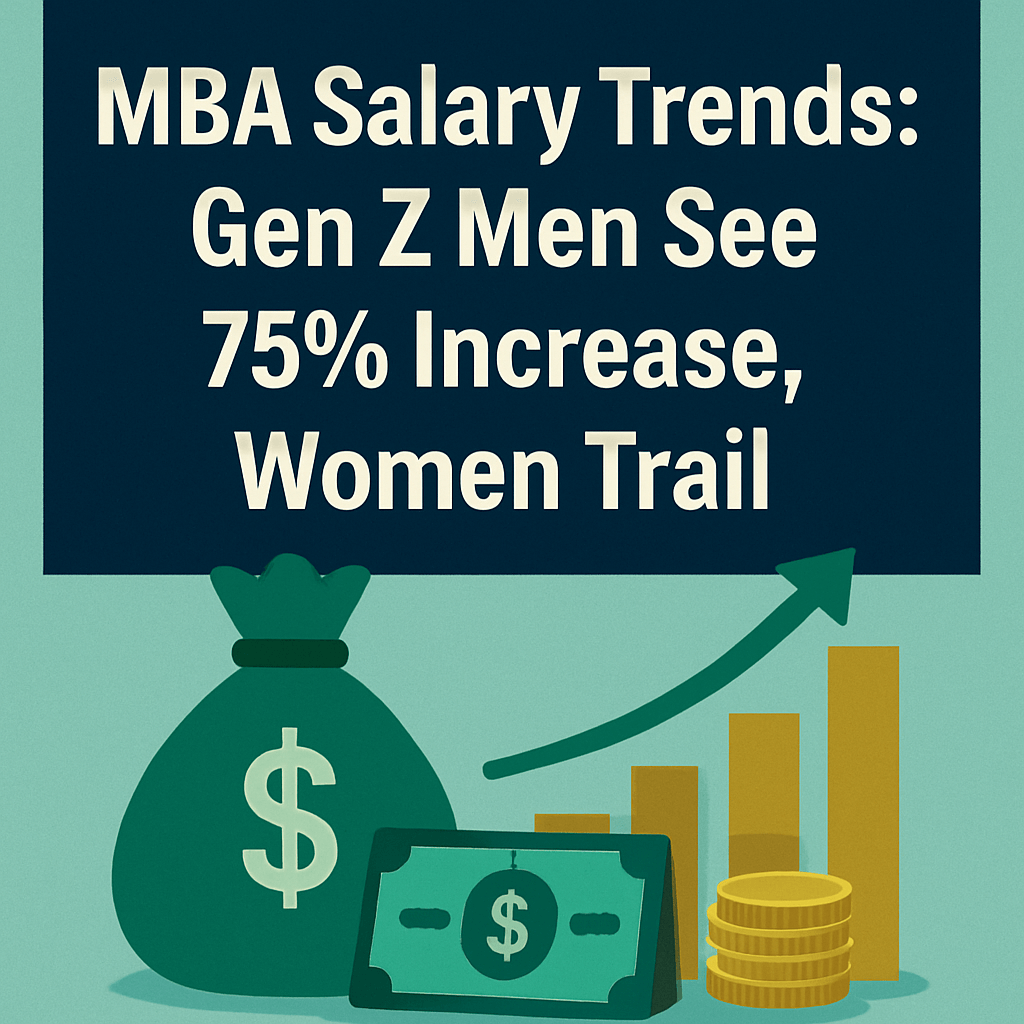MBA Salary Trends: Gen Z Men See 75% Increase, Women Trail

The pursuit of a Master of Business Administration (MBA) degree has long been touted as a pathway to lucrative job opportunities. However, recent research reveals a concerning disparity in salary increases between male and female graduates, particularly among Generation Z. According to new findings from the Forté Foundation, while male MBA graduates can expect an average salary increase of 75% post-graduation, their female counterparts are projected to see only a 50% increase—a gap that underscores persistent inequalities within the business sector.
Comparison of Salary Increases
Forté Foundation’s research indicates that, upon entering the workforce after obtaining their MBA, male graduates typically earn an average salary of $140,007, reflecting a significant surge from their pre-MBA earnings. Meanwhile, female graduates see their starting salaries rise to approximately $131,449. This $10,000 discrepancy is not just a one-time difference; over the years, it accumulates to a staggering $36,000 less annually for women, highlighting a troubling trend across various metrics of career advancement.
Long-Term Career Impact
“Despite earning the same degree from the same elite institutions, women still lag men in every measure of career advancement,” Elissa Sangster, CEO of Forté, remarked.
The gender pay gap becomes increasingly pronounced as women progress in their careers. While initial salary discrepancies are evident, the gap widens further within two to three years of entering the workforce. By 2025, data suggests that male MBA graduates could be earning an average salary of $216,487, whereas female graduates trail significantly behind at an average of $179,987. This pattern reflects broader systemic issues in hiring practices, career progression, and even negotiation tactics, which tend to disadvantage women.
Women in Leadership: Progress and Challenges
In terms of representation, the number of women earning MBAs has increased significantly, now constituting about 42% of all MBA students—a 10% rise since 2011. Furthermore, at leading business schools such as Northwestern and Duke, gender parity is being achieved among cohorts. However, despite this progress, women still face considerable hurdles when it comes to ascending to leadership roles.
- Women CEOs in Fortune 500 companies reached a record of 55 this year, yet they still comprise only a small fraction of corporate leaders.
- Women who have served in leadership roles continue to face sponsorship roadblocks, impacting their ability to connect with mentors who can facilitate career development.
The Importance of Sponsorship
Sangster emphasizes the critical role of sponsorship as a means to bridge the gender pay gap. While 74% of women with sponsors report that these relationships helped accelerate their career advancement, only 46% of women actually have sponsors. This lack of connection to influential mentors can hinder women’s growth opportunities, particularly in industries that are still male-dominated.
Career Path Differences and Their Role
Though some variations in post-MBA salary can be attributed to different career trajectories—where women often gravitate toward fields like marketing and human resources that may inherently offer lower remunerations—the impact of gender representation within these sectors should not be undervalued. Fields with a larger presence of women tend to support a more inclusive environment, which can help foster mentorship and sponsorship among peers.
Conclusion: Navigating Future Trends
The ongoing challenges women face in achieving equitable salaries post-MBA reflect deeper systemic issues within the business landscape. As organizations increasingly recognize the significance of diversity and inclusion, the future may hold promise for correcting these imbalances. Continued advocacy for female sponsorship, mentorship programs, and inclusivity initiatives will be essential as the workforce evolves.
For those considering an MBA, understanding these dynamics is crucial in navigating career opportunities and negotiations effectively.